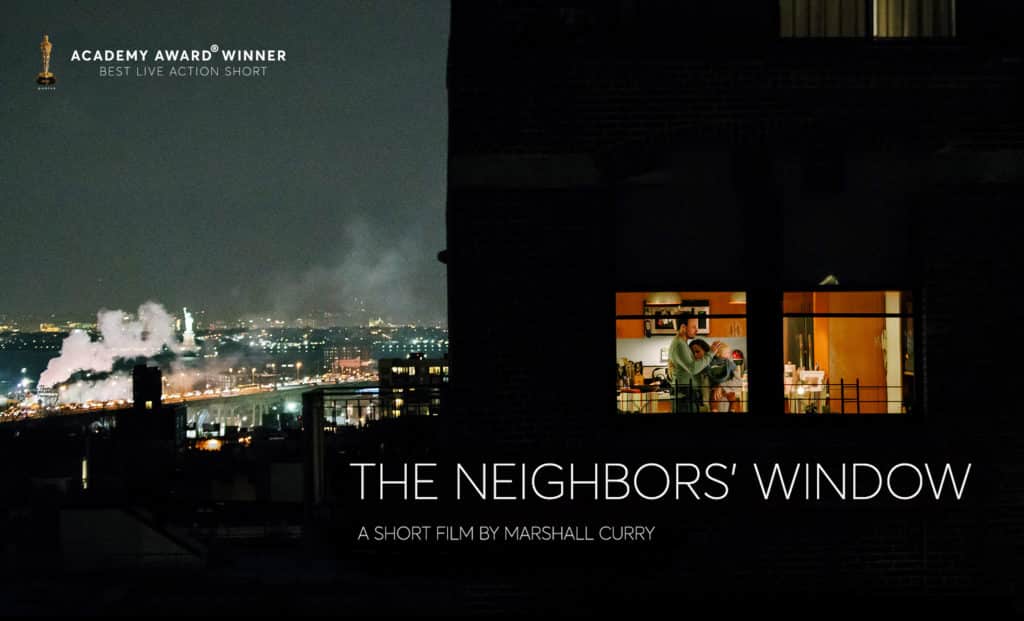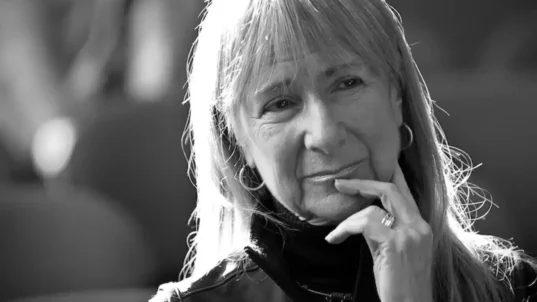
The Neighbors’ Window by Marshall Curry
People watching–we love to do it. But, do we really “see” each other? We imagine that the grass is greener on the other side, that others have it better than we do. How do these misperceptions get in the way of really connecting with one another? What could help us to really see and know one another? How could we foster connection in our communities?
In small group conversations we explored these questions in our film and conversation event surrounding the Academy-Award winning short The Neighbors’ Window. This was the fourth film in our five-part film and conversation series The Human Condition(ed): Exploring our Social Connections and Disconnections. The Neighbors’ Window can help us to think about the ways we often fail really to see one another and about the blockages, some of them self-imposed, for real connection.
One key insight from the discussions was that generous conversations are a great way to foster connections. So, why not join us and register for our next film and conversation event. On November 18 at 1pm ET we’ll watch Feeling Through, a short film about an unexpected late-night encounter between two strangers.
Here’s a summary of our participants’ thoughts about The Neighbors’ Window:
What holds us apart and feeds into misperceptions of each other?
- Envy, the sense that the grass is greener on the other side of the fence
- Looks can be deceiving and we tend to judge by superficial impressions
- We see only a small slice of others’ lives and we think they have it better than we do
- We don’t see the challenges others have in their lives
- We don’t know what it’s like to be in another’s situation
- Fear of missing out (FOMO)–we constantly compare ourselves to others and feel like we’re missing out
- We project our desires onto others
- Changing expectations around privacy, living in a “tell-all” (or “show-all”) culture
- Attitudes about different stages of life (youth, parenting, older adults, etc.)–different stages might envy the others
- There can be a sense of loss, moving from one stage of life to another
- We misperceive the challenges we face around different stages of life (one family dealing with a new birth, the other with death)
- The challenges of being a young family, having children
- Having young kids can be very isolating
- The challenges of managing different family roles
- The challenges of raising children
- There are different challenges in different kinds of communities, from urban to rural
What might help to reconnect us?
- Cultivating empathy can help–remind ourselves that we don’t know the depth of what other people are facing
- Remember that life is short, so live it enjoying the blessings you have rather than comparing yourself to others (since you don’t know their situation)
- Social comparisons and envy of others get in the way, so embrace where you are and accept others
- Focus on the blessings you have and are likely overlooking
- What if others are watching you in envy at the blessings of your life?
- Cross generational divides by accepting the different stages of life, embracing where you are and accepting what others have to offer
- Respect for one another is essential
- Greetings and other social niceties help boost community spirit
- Interactions with others, coming together with them, can help us better understand them and develop empathy
- Conversations are a great way to connect (more opportunities like this one!)
- Helping other people is a great way to get to know them
- Having intergenerational groupings is a great idea
- Regular meetings and events can help people grow connections
- You need courage to step up and actually connect to someone new
- It helps to have shared spaces (courtyards, squares, parks) where people can come together
- Common events can bring “strangers” together to foster connections
- Community parties, potlucks, block parties
- Create opportunities for intergenerational get-togethers–magnify the ability of different generations to share what they have to offer
- Foster an “it takes a village” approach to kids, where the neighborhood looks out for the kids, making it easier on parents
- Organize neighbor-to-neighbor activities to get to know one another, help each other out, work on community projects
- Create a national holiday to celebrate getting to know your neighbors (like “Neighbor’s Festival” in France)
- We could have more family-friendly policies to help young parents feel less isolated and overburdened
- Paid family leave would help, as would affordable childcare



